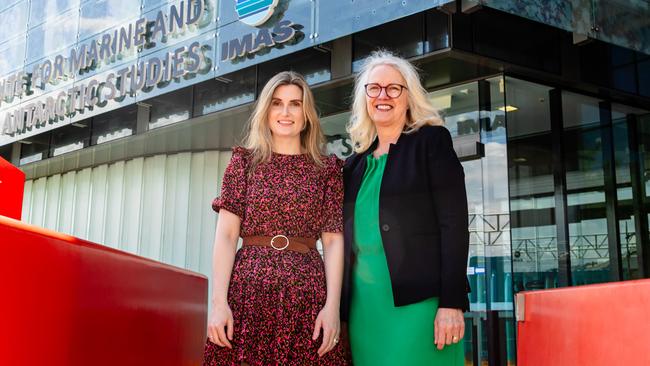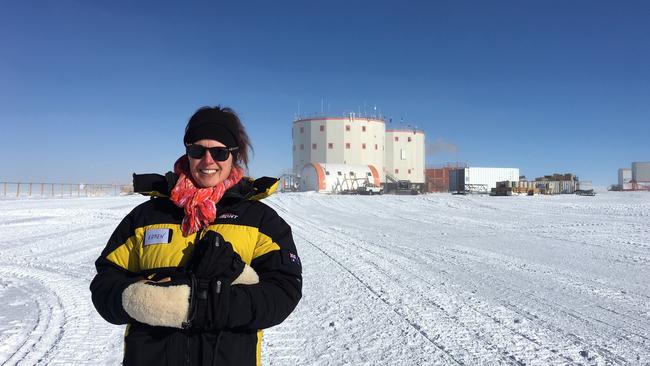Antarctic Women’s Network encourages Tassie girls and women to pursue career in sector
Want a career that will take you to the “coolest place on Earth”? The Antarctic Women’s Network is working to boost confidence in Tasmanian women to take on a career in the Antarctic sector.

Tasmania
Don't miss out on the headlines from Tasmania. Followed categories will be added to My News.
When Antarctic expeditioners were stuck in hotel quarantine, they received postcards from primary school students – and what they received were two very different responses.
“One response was, ‘I hear it’s really dangerous in Antarctica. I would be too scared to go but I’m glad that you’re going’. A second response was ‘I hear it’s really cold in Antarctica. When I grow up I also want to go on an expedition’. You will not get a prize if you guess which came from a girl and which came from a boy,” Tasmanian Antarctic advocate Karen Rees said.
Ms Rees is part of the Antarctic Women’s Network (AWN), a group that encourages girls and women to pursue careers in the Antarctic sector.
“Our goal with AWN is to get women and girls of Tasmania to consider that Antarctica is not too dangerous to go to and [they] can be supported to find a job in the coolest place in the world,” she said.

“Women don’t put themselves forward enough. We need to lift their confidence to say ‘yes, I can do this and other male colleagues are not better at it than me’.”
She said of the Australian Antarctic’s Division expeditioners heading to the ice this summer season, three per cent of the team were women.
“From the Antarctic women’s network perspective, we want to stand together with the good men in Antarctica to build the balance,” Ms Rees said.
It comes as Premier Jeremy Rockliff opened up the celebration of Antarctic Women’s Network inaugural talk series with nearly 120 people attending who have contributed to the Antarctic industry.
Mawson’s Hut Foundation chief executive Laura Colrain said there is still gender inequality in the Antarctic sector.
“When we send our next conservation expedition down to the historic sites, it’s really important to try and get that balance of male conservators and female conservators,” she said.
“It’s such a dominated male sector like everything, but we are slowly making advances and there’s now a lot more women employed down in Antarctica and in the sector.”




